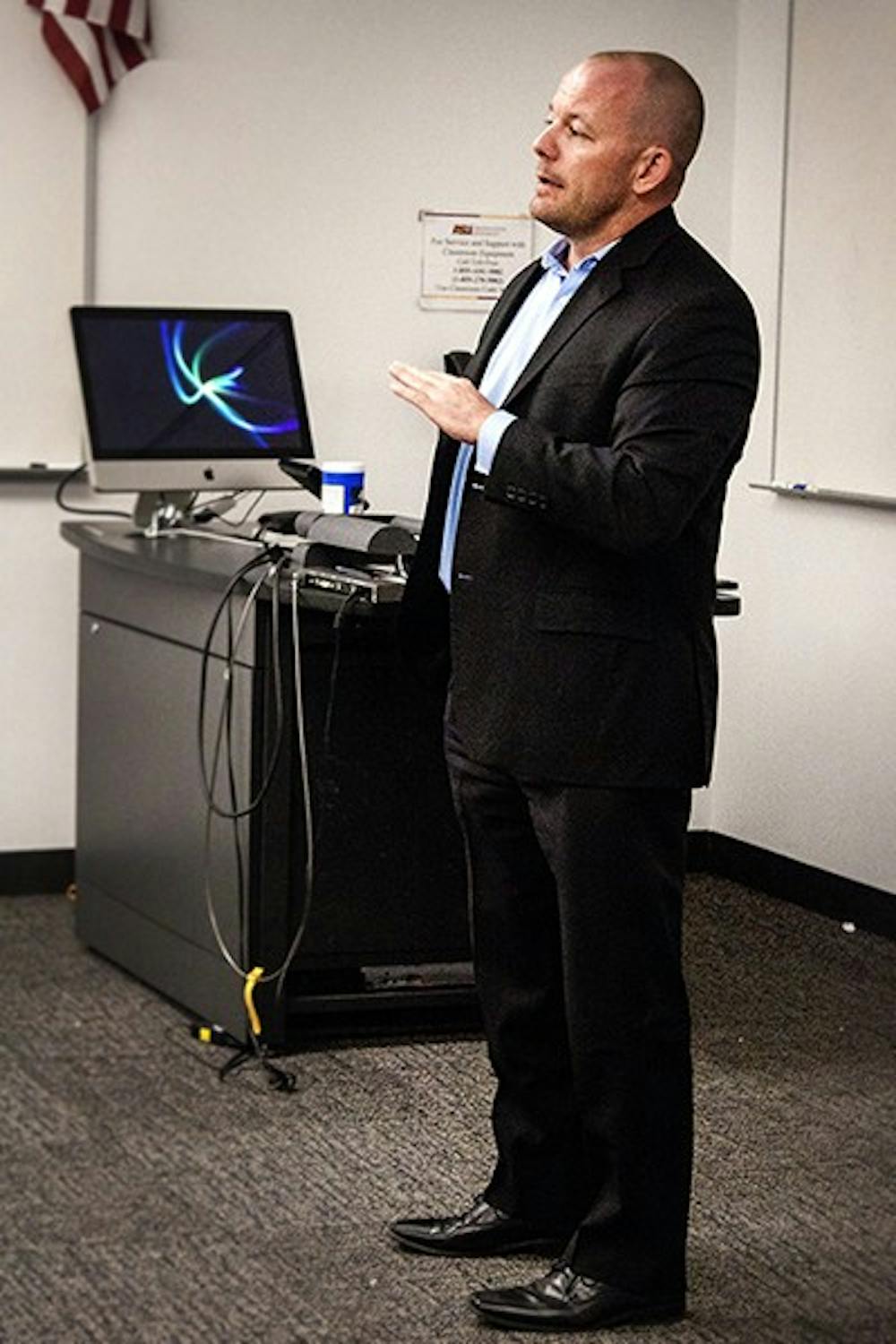 Arizona State House minority leader Chad Campbell (D) spoke about being an Arizona lawmaker.
Arizona State House minority leader Chad Campbell (D) spoke about being an Arizona lawmaker.The state representative also stressed the importance of getting involved and spending time with your district policymakers. (Photo by Cassidy Trowbridge)
Students from three different classes of the school were present. Daniel Schugrensky, who teaches a class called Participatory governance and civic engagement, was one of the professors who invited Campbell to speak.
“The class is about collaboration, and how citizens can participate in between elections,” he said.
The conversation lasted almost 90 minutes and covered topics including Senate Bill 1062 and Senate Bill 1070, the widening of the party gap and the difference between lobbying organizations, PACs, think tanks and unions.
“Legislators like talking to citizens," Campbell said. "When you go and meet with your legislator, tell them why you're there, connect with them on a human level."
Of course, meeting face to face with your legislator isn't the only option. Campbell stressed the importance of all manner of groups to the political process.
“I've got 1,200 bills in front of me," he said. "I can't always know everything about every one of them. That's why lobbyists are useful. It's up to the politician to figure out how trustworthy the lobbyist is, thought."
Lobbying and interest groups are also changing their strategies, Campbell said. Lobbying isn't reduced to a lobbyist and a senator sitting down for cigars anymore, he added.
Campbell said now lobbyists are more interested in organizing grassroots movements and the general public than speaking with legislators face to face.
Campbell said that SB 1062 was the ultimate example of civic participation affecting the legislative process in between elections. Knowing that the bill would pass both houses easily and that Governor Jan Brewer planned to sign it, the Democratic party in Arizona worked to bring as much attention to the bill as possible.
Party members contacted local and national media and the business community, including the NFL, Campbell said.
Democratic-leaning political groups also mobilized in huge numbers, bringing so much attention to the bill that some Republicans who originally voted for the bill changed their mind and publicly asked the governor to veto it, he added.
The importance of independent voters was another key point for Campbell.
“No pressure ... but the future of the country is in your hands, guys,” he said.
With the widening party gap, the power to get things done in both state legislatures and Washington lies with independent voters, a quickly growing voting group nationwide, Campbell said. However, independents must learn to mobilize through PACs and other groups rather than the traditional party structures, which are obviously unavailable to independent voters, he added.
Social cultural pedagogy graduate student Brandon Schneider, who attended the event, said he enjoyed the conversation.
“I think this will definitely make Arizona local politics more accessible and applied to what we're learning in class,” he said.
Reach the reporter at dhignutt@asu.edu or on Twitter @davidhignutt




